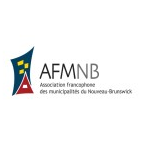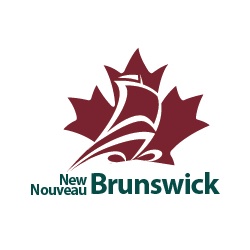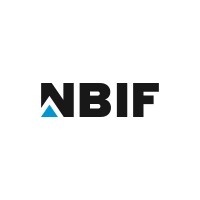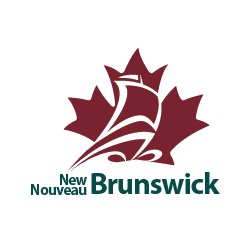
Community Investment Fund
At a glance
- Maximum amount : 65,000 $
- Minimum amount : 500 $
- Up to 75% of project cost
- Open Date : July 9, 2024
- Closing date : July 9, 2024
- All industries
- New Brunswick
- All legal structures
- From $ 179,812 to $ 1,000,000 in revenue
- All organization sizes
- All groups
Overview
Get a non-repayable contribution to cover eligible costs of community initiatives such as festivals, national events, volunteer recognition events, and community growth initiatives.
Activities funded
Eligibility
Eligibility for this grant is determined by specific criteria set by the Regional Development Corporation of New Brunswick.
- The applicant must be a legal entity such as a business, non-profit organization, or cooperative registered in New Brunswick.
- The applicant must demonstrate a tangible impact on regional economic development such as job creation or business growth.
- The project must align with the strategic priorities and economic goals of the New Brunswick government.
- The applicant must prove the financial and operational capability to execute the proposed project successfully.
- Applications must include a detailed project plan with clear objectives, timelines, and outcomes.
Who is not eligible
Certain types of companies are not eligible for this grant. The following list includes the ineligible companies and organizational activities.
- Commercial or for-profit companies
- Organizations with ongoing operating costs including wages and salaries
- Fundraising campaign organizations
- Organizations aiming to cover deficits or retire debts
- Organizations looking to increase endowment funds
- Organizations with activities serving primarily religious or political purposes
- Individual applicants
- Organizations involved in tours or travel outside New Brunswick
- Organizations that have not completed terms of previous contributions
- Organizations looking to cover costs of land or related interests
- Organizations seeking to cover the cost of uniforms or licensed vehicles
- Organizations requiring firefighting equipment
- Organizations seeking sponsorship requests
- Organizations covering travel costs
Eligible expenses
This grant supports initiatives that aim to bolster regional development and economic growth within the province of New Brunswick. Eligible projects focus on enhancing community infrastructure, boosting entrepreneurial activities, and fostering innovation in various sectors.
- Development and revitalization of community infrastructure projects.
- Support for business expansion and entrepreneurial ventures.
- Initiatives aimed at workforce development and training.
- Projects promoting environmental sustainability and resilience.
- Research and development activities to drive innovation and competitiveness.
- Cultural and tourism initiatives that enhance local attractions and experiences.
Eligible geographic areas
This grant is available to companies located in specific geographical areas determined by the Government of New Brunswick's Regional Development Corporation. These areas are defined to support local economic growth initiatives.
- Businesses located within the Province of New Brunswick.
Selection criteria
Yes, there are evaluation and selection criteria for this grant. The proposals must meet eligibility requirements, demonstrate alignment with program objectives, and not be eligible for other provincial funding, except for SEED funding for students.
- Meet the eligibility requirements
- Demonstrate that the project is directly linked to one of the Program’s objectives
- Not be eligible to receive any other funding from the Province (except SEED funding for students)
How to apply
Identify Project Eligibility
- Review the CIF guidelines to ensure your project aligns with one of the funding categories: Community Growth Initiatives, Community Events & Festivals, or Indigenous-led Community Events.
- Ensure the project is not eligible for other provincial funding programs and falls under the objectives of CIF.
Prepare Application Documents
- Gather necessary documents and information, such as a detailed project description, budget, program of activities for events, and any other required paperwork.
- Ensure you have proof of non-profit or charitable incorporation, if applicable.
Submit Application
RDC Evaluation
- RDC officers will review your application, consult with line departments if needed, and ensure it meets all eligibility requirements.
- Your local MLA will be consulted to help identify funding priorities.
Funding Approval
Reporting
- Submit a final activity report, financial report, and any supporting documentation, such as invoices and proof of payments, after the project or event completion.
- Ensure all payments come from the applicant and cash transactions are not accepted.
Additional information
The grant includes procedures for reporting requirements and management responsibilities.
- Supporting documentation required includes final activity report, financial report, audited financial statements, invoices and proof of payments, legal agreements, and any other necessary documentation.
- The Regional Development Corporation manages the CIF, handling application reception, assessment, and evaluation.
- The President of the Regional Development Corporation has the authority to approve funding for projects.
- The local MLA is consulted to identify funding priorities for their riding during the evaluation process, although projects can be approved based on merit if the MLA does not respond in a timely manner.
Frequently Asked Questions about the Community Investment Fund Program
What is the Community Investment Fund?
How much funding can be received?
What is the deadline to apply?
Who can I contact for more information about the Community Investment Fund?
Where is the Community Investment Fund available?
Is the Community Investment Fund a grant, loan, or tax credit?
Who are the financial supporters of the Community Investment Fund?
More programs like this

Translation and Interpretation Reimbursement Fund for Municipalities

Plug-In NB Charging Rebates for Business

Improving Crop and Livestock Health and Quality

Farm Land Identification Program

NBIF — Emerging Concepts and Technologies Program

Future Wabanaki

Enabling Agricultural Research and Innovation


Wildlife Damage Compensation Program
